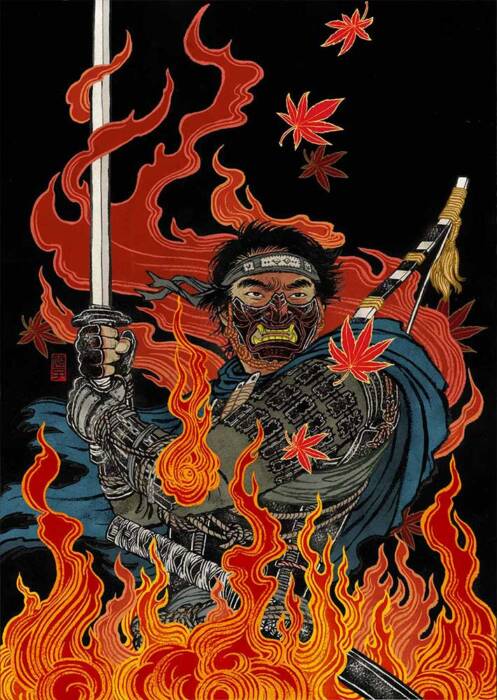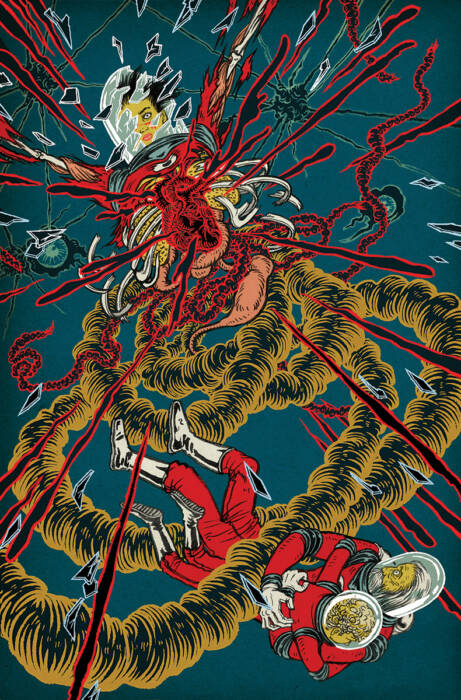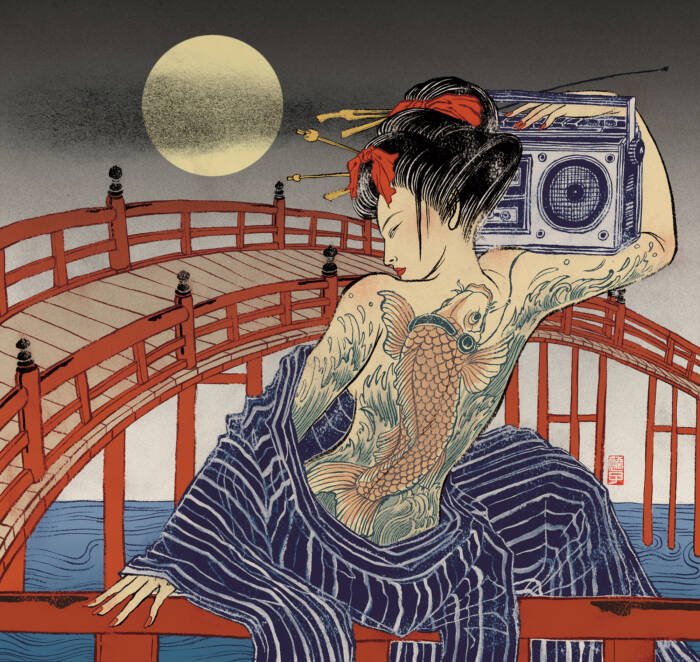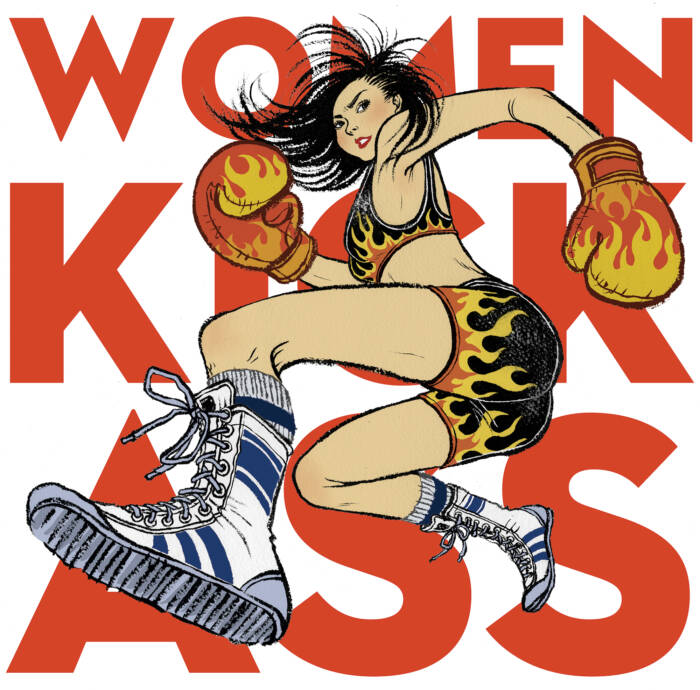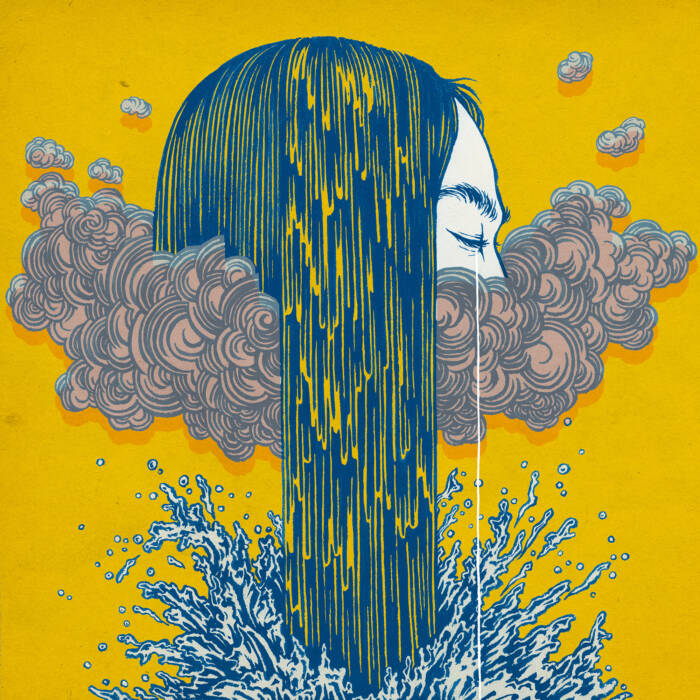Yuko Shimizu – The Honest Truth
In this interview, you will get a glimpse into the life of Yuko Shimizu (清水裕子), a renowned illustrator. She talks about how to deal with rejection, how to make choices when you’re young, and what to expect of the creative industry and life as a freelancer. Although Yuko may not have the one right answer to every problem, but she knows what she’s talking about from her own experience.
After having a solid career in a PR company. What led you to pursue your dream career as an illustrator?
Well…, I don’t know if I say my job was a solid career. (It was not at a PR company. I worked for a corporation with relatively large PR department). Corporate life was not for me, even if the work itself was meaningful, but I felt miserable. When you’re in a bad place, that’s when you can actually force yourself to change your life, and that’s pretty much what happened at the end.
What was it like to go back to college after 11 years of working?
Exciting and frightening at the same time. First, the age difference between my classmates and me. Also, after a long time of not being in school, you forget how to study. I didn’t realize that until the first time I had to study for an art history exam in school and thought, “Oh God, I have no idea how to study for a test!”.
But overall, it was good. There is some beauty in going back to school as an adult with a strong will. The four years in art school were a whole other experience and a different experience from school, because school was part of the path you took as a teenager before real life.
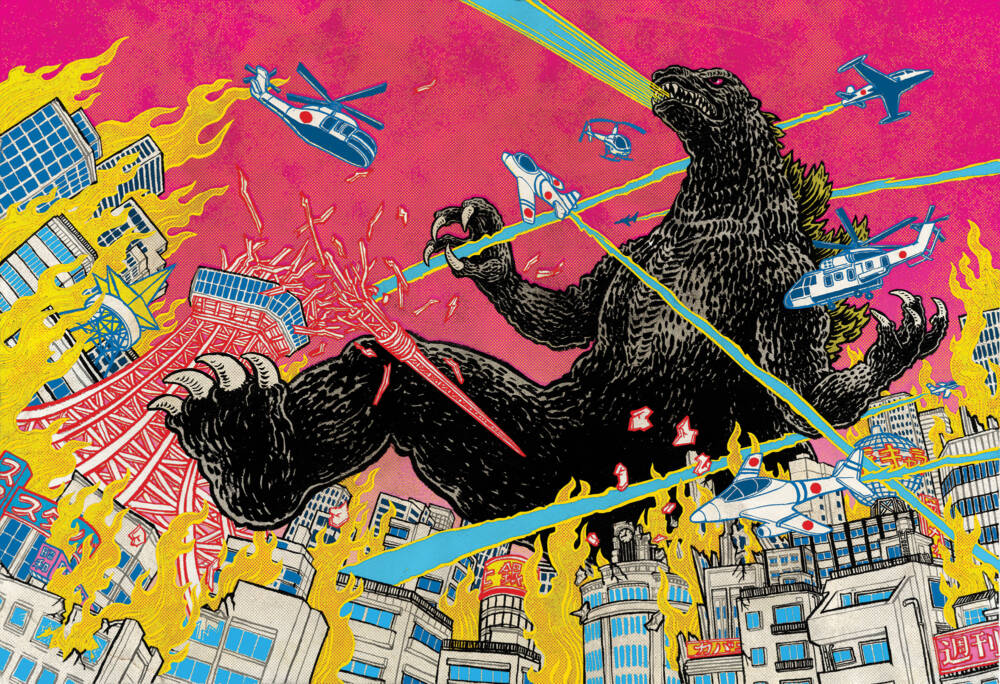
What advice would you give to young people who don’t yet know what they want to do in life, but feel the need to decide sooner rather than later?
If you have to make a career decision at a young age and are still unsure if it’s the right path (me going to corporate was exactly it), please remember that nothing is set in stone. It can be temporary and you can change at any time.
Whatever you do in the meantime, regardless of how little it has to do with your future goal, will only help you better achieve your goal. Nothing is a waste of time. You can learn from anything if you just try hard enough to do what you have in front of you right now. Everything you learn along the way will help you better achieve your future goal later on. So, please try to do your best in the meantime.
The world around us moves at such a fast pace that we tend to forget to live in the moment and constantly think about what’s next. It’s OK to worry about the unknown goals of the future, of course, but we shouldn’t forget to live in the present and make the most of it, because it’s the fuel for our future. (And I say that to remind myself, too).
How long have you been writing a blog? Were you writing before you started blogging? Why do you write, is it helpful or is it just for fun? (I really enjoyed reading through it)?
I don’t really blog. I write short notes on Instagram that I think may help some young (and here I don’t mean by age, I mean by experience) artists. I should post them more on my blog section of the website, but there is always too many things to do each day, and i tend to forget.
In your blog, you mentioned that you were rejected from college but still managed to make lemonade out of it. What tips do you have for dealing with rejection and moving forward?
I was not rejected by the university, but by graduate school (MFA), which is much harder to get accepted.
Rejection is never easy, but it’s part of life as a freelancer. It’s good that we get rejected so we can check our reality. It is a part of our lives. And once we start accepting it, we worry about it less. Yesterday I spent half a day working on a project that I’m pretty sure I won’t be selected for. But you have to do what you have to do. And I’ll deal with the rejection gracefully. Disappointing? Yes, but you can still cope with it gracefully and move on.
The blog post “Posting on Facebook in real time (and talking to strangers while I work)” prompted me to ask. Could you imagine streaming yourself on Youtube or Twitch as well? Please explain why yes or no.
No. I never thought about that. I’m very private about my practice. Not that I have any secrets. I don’t. I only have two places where I’m comfortable working. My home and my studio. I can’t even concentrate in the other places. I don’t even do demos when I visit schools. I need my peace and concentration.
Obviously good for them, the artists who can work anywhere, do live art or stream. You go. It’s just not me.
In your blog I could also see that you have pretty crazy artists from different creative industries as influences. Does it change at all or do you stick with your favourites? Can you pick 3 artists and tell us how they influence your work?
The question of “favorite artists” is one of my least favorite questions and one that I am often asked. Artists who have influenced and inspired us in the past may not be relevant today and it’s not worth mentioning them, but they have all helped make us who we are today, and in that sense they are all relevant. And there are so many great artists in all these different fields. So why make a selection?
You lived in Japan and now you live in New York. What is the biggest difference between the U.S. and Japan? What inspires you in America? Japan we can see, but feel free to tell us more about it.
First things first. I love New York. I don’t like the United States. I live in New York because it’s my home, but if I ever move out of New York, I will live outside the US.
Since we don’t have all day to talk about this topic, I will keep it simple: In New York, everyone can be who they are without being questioned. It is a very special place.
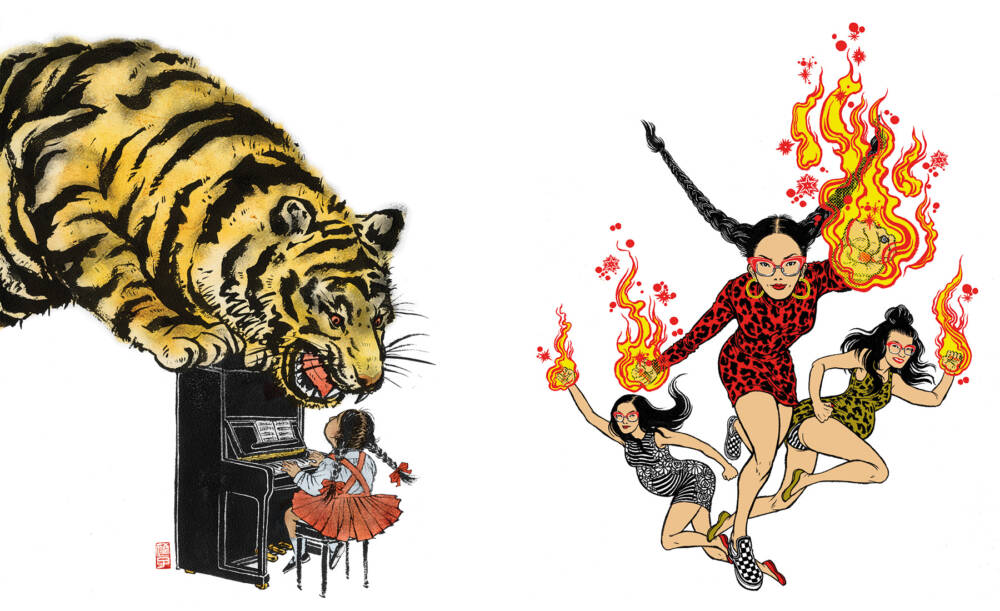
What does your illustration process look like? Do you have any special techniques or routines that help motivate or inspire you?
I draw with ink on watercolor paper and then color digitally. There’s nothing special about that. I choose to draw physically (while most people go completely digital, especially the iPad generation) because I like the idea of drawing physically. We do it for a living and spend so much time doing it, so it should be fun. There’s no mystery behind it.
What are your tips for newly minted freelancers?
Whatever your career path will be, it will be hard. I don’t believe, and you shouldn’t believe the phrase “if you do what you love, you won’t work a day in your life”. You still have to work and make a living, and that can be hard and stressful.
And that’s the reason WHY you choose to do what you love. It helps to do what you love, it makes you endure the hard times.
For our last question, we thought you might want to clarify something. Is there anything you would like to say to all the people who think you are Yūko Shimizu, the designer of Hello Kitty?
“Do your research before you draw the wrong conclusions”. One of the first things you see is that Hello Kitty was created in the early 1970s. If that’s not a huge giveaway, you are using Google wrong. LOL.
Thank you.
Yuko Shimizu will speak at the Forward Festival Vienna in October. Next to her, you will be able to hear Creatives like Anna Ginsburg, Max Siedentopf, Anthony Burrill and many more.
